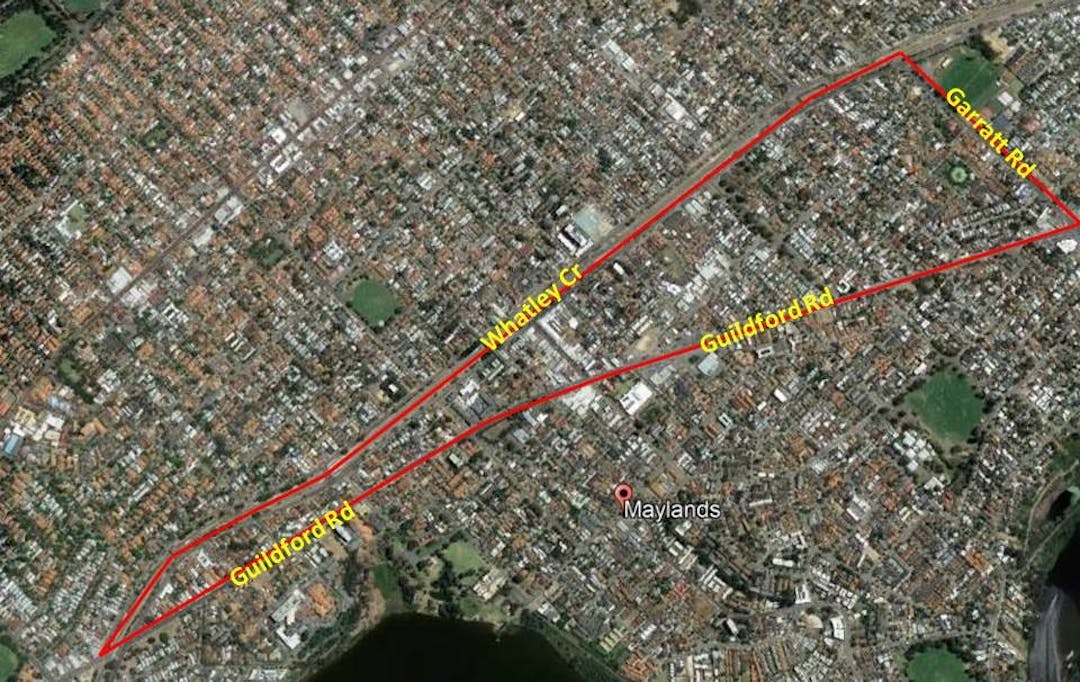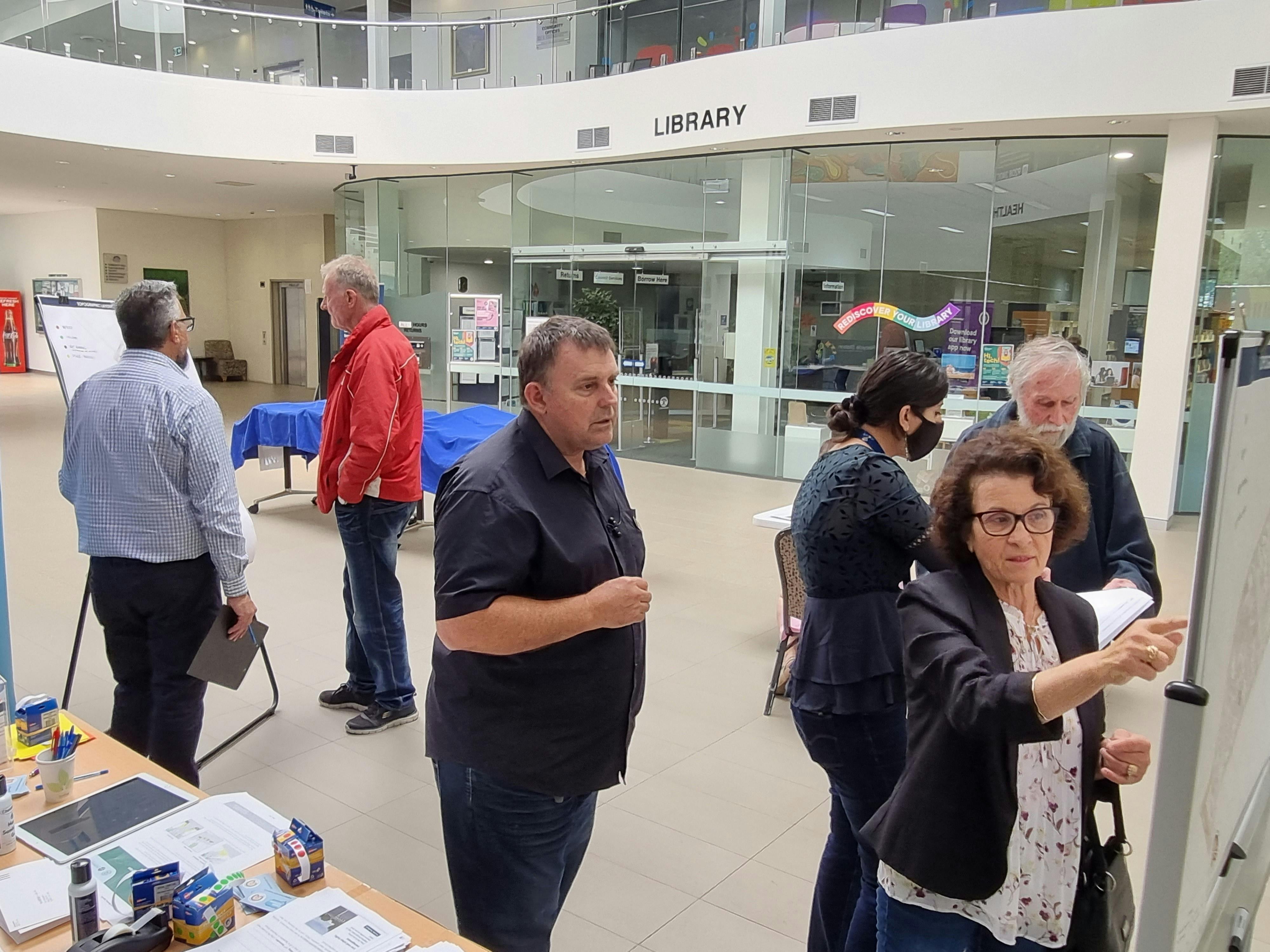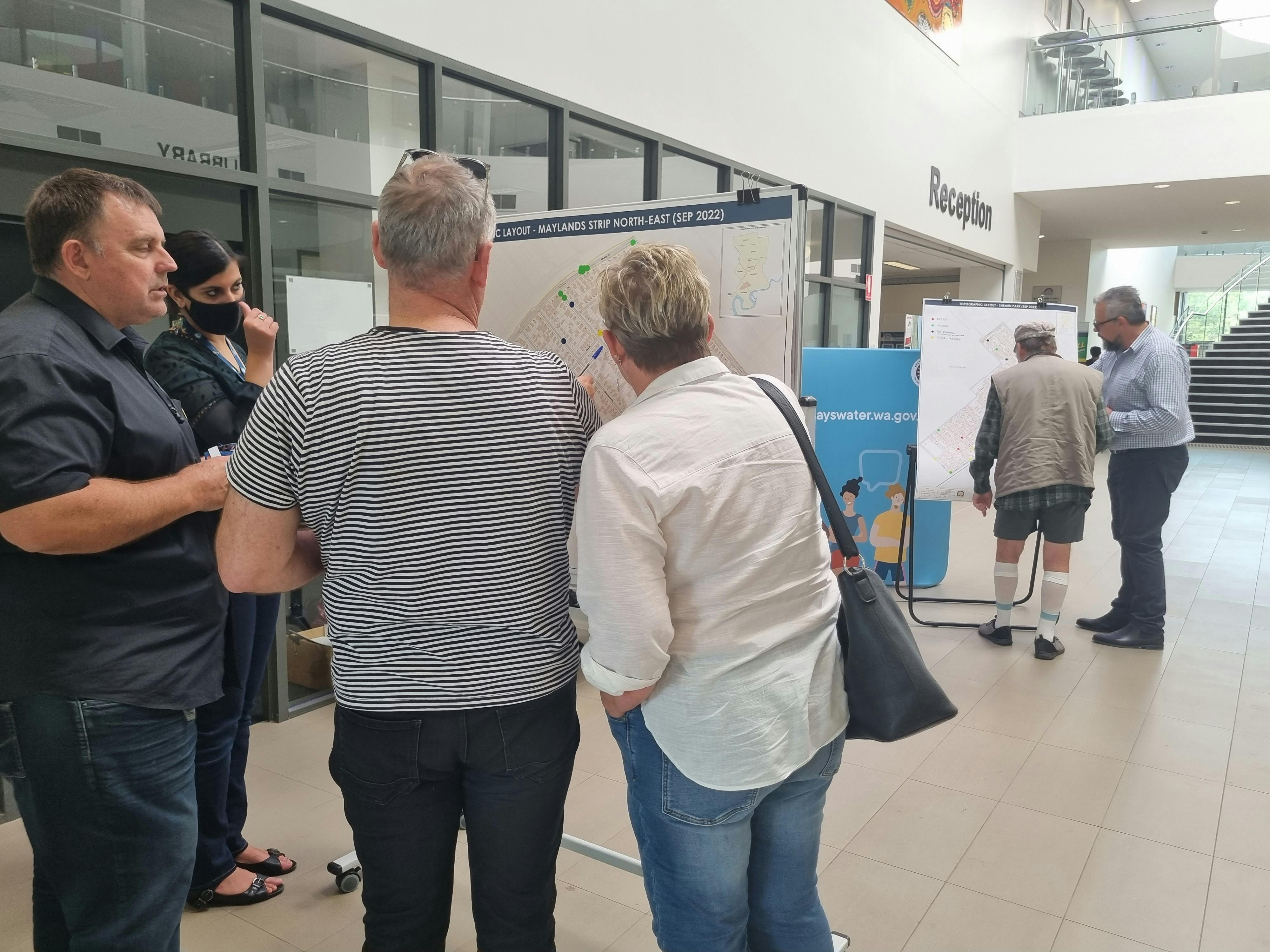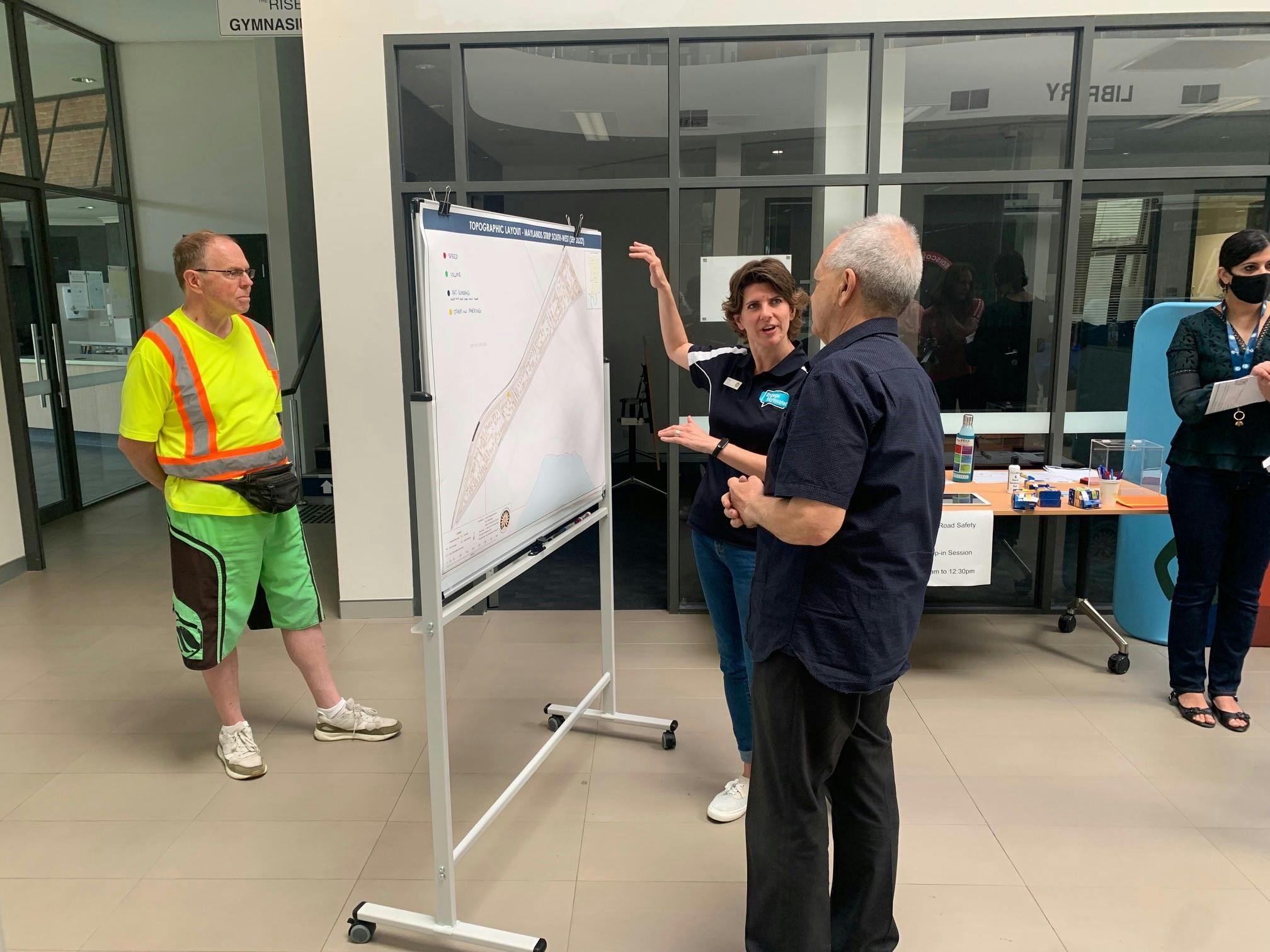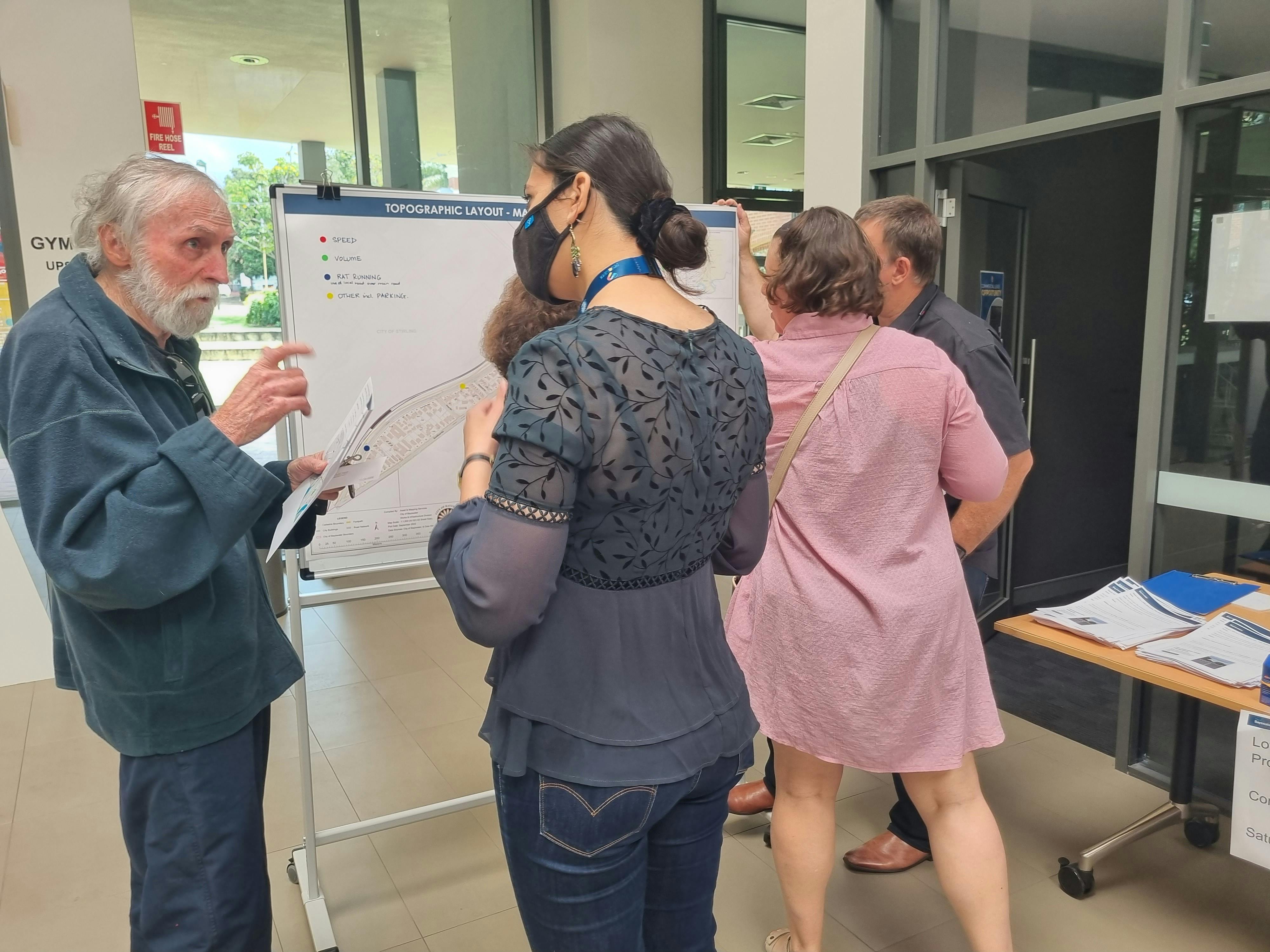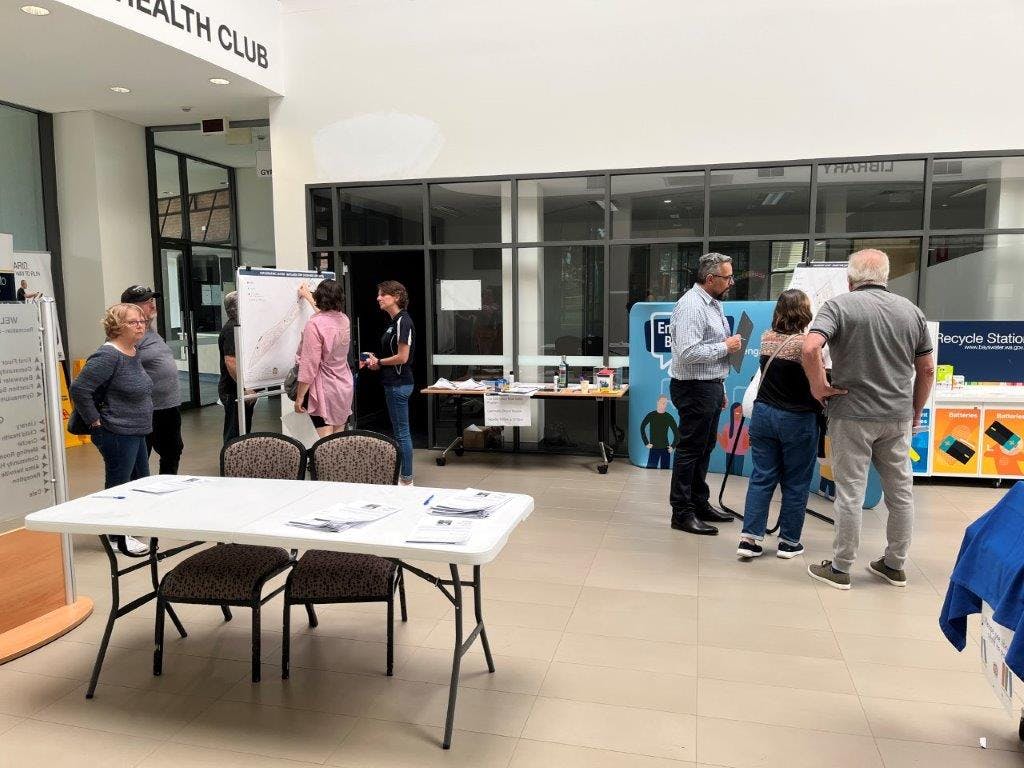Background
It is important that people who live and work in these areas can share their experience in relation to traffic issues in their local neighbourhood. We want to embed this knowledge in the design process, to create tailored traffic plans to address local issues.
The idea is to make whole neighbourhood safer, not just single roads. The funding is for a range of small solutions, focusing on many low-cost treatments rather than one large one. This program only applies to local roads - it does not fund any measures (treatments) on main roads.
As well as input from local residents, this project will consider findings from the 2017
Local Area Traffic Management study and other relevant information. Successful treatments in other metropolitan areas have been installed to reduce speed, number and severity of crashes, and to create safer walking and cycling environments.
There are some road treatments that are better suited to slow traffic in particular conditions. Detailed information on the types of treatments is available
here, and may include:
- Mini roundabouts
- Raised safety platforms
- Signs and lines
How can I get involved?
Stage 1 of Community Engagement
We have invited residents to let us know what traffic issues you've noticed in your neighbourhoods. This can include speed, volume of traffic, parking issues, hooning, rat-running (using local roads to avoid traffic on main roads) or other observations. Residents used either or both of the following methods to register their feedback:
- the online map below to tell us your experiences.
- Attended the drop-in session held on 22nd October at The RISE to talk with the project team
Outcomes of this engagement can be viewed on pages 413 - 415 of the Council Agenda.
Stage 2 of Community Engagement
- Completed the survey by Tuesday, 20 June 2023.
- Attended the drop-in session on Saturday, 20 May 2023 between 9.30pm and 12noon at The RISE
Outcomes of this engagement can be viewed on pages 428 - 432 of the Council Agenda.
Stage 3 of Community Engagement
Earlier in 2023, the City engaged local residents living within the Maylands Central area in order to better understand the key safety concerns relating to your local roads. Based on responses received from a number of mail drops, local drop in sessions and surveys the City developed a draft treatment plan that was considered by Council in August 2023. At that time concerns were raised around the proposal; specifically, the inclusion of a number of mini-roundabouts and their potential impact on pedestrian and cyclist safety.
As a result, Council requested the City to investigate alternative treatment options and undertake further community engagement.
In considering a range of options available within the LCURS program that are in keeping with both best practice and the local road environment around Maylands Central a revised treatment plan is proposed Draft E3 Treatment Plan
The revised Treatment Plan proposes replacing mini roundabouts with a range of raised platforms. The raised platforms will all be uniform in height but will vary in size in order to accommodate stormwater run-off flows.
Draft Treatment Plan?
A recommended Draft Treatment Plan has been developed based on Local Community feedback, Main Roads WA data, and collected traffic data and has been presented to Council.
Council Decision
The results of the community engagement and the final treatment plans were presented to Council at the March 2024 OCM. You can view the report here on pages 348 to 393
What's next?
The City's engineering team have prepared a tender for construction which has been advertised and will be presented to Council at the October 2025 OCM. If a successful contractor is endorsed by Council, construction is scheduled for January to March 2026.
Background
It is important that people who live and work in these areas can share their experience in relation to traffic issues in their local neighbourhood. We want to embed this knowledge in the design process, to create tailored traffic plans to address local issues.
The idea is to make whole neighbourhood safer, not just single roads. The funding is for a range of small solutions, focusing on many low-cost treatments rather than one large one. This program only applies to local roads - it does not fund any measures (treatments) on main roads.
As well as input from local residents, this project will consider findings from the 2017
Local Area Traffic Management study and other relevant information. Successful treatments in other metropolitan areas have been installed to reduce speed, number and severity of crashes, and to create safer walking and cycling environments.
There are some road treatments that are better suited to slow traffic in particular conditions. Detailed information on the types of treatments is available
here, and may include:
- Mini roundabouts
- Raised safety platforms
- Signs and lines
How can I get involved?
Stage 1 of Community Engagement
We have invited residents to let us know what traffic issues you've noticed in your neighbourhoods. This can include speed, volume of traffic, parking issues, hooning, rat-running (using local roads to avoid traffic on main roads) or other observations. Residents used either or both of the following methods to register their feedback:
- the online map below to tell us your experiences.
- Attended the drop-in session held on 22nd October at The RISE to talk with the project team
Outcomes of this engagement can be viewed on pages 413 - 415 of the Council Agenda.
Stage 2 of Community Engagement
- Completed the survey by Tuesday, 20 June 2023.
- Attended the drop-in session on Saturday, 20 May 2023 between 9.30pm and 12noon at The RISE
Outcomes of this engagement can be viewed on pages 428 - 432 of the Council Agenda.
Stage 3 of Community Engagement
Earlier in 2023, the City engaged local residents living within the Maylands Central area in order to better understand the key safety concerns relating to your local roads. Based on responses received from a number of mail drops, local drop in sessions and surveys the City developed a draft treatment plan that was considered by Council in August 2023. At that time concerns were raised around the proposal; specifically, the inclusion of a number of mini-roundabouts and their potential impact on pedestrian and cyclist safety.
As a result, Council requested the City to investigate alternative treatment options and undertake further community engagement.
In considering a range of options available within the LCURS program that are in keeping with both best practice and the local road environment around Maylands Central a revised treatment plan is proposed Draft E3 Treatment Plan
The revised Treatment Plan proposes replacing mini roundabouts with a range of raised platforms. The raised platforms will all be uniform in height but will vary in size in order to accommodate stormwater run-off flows.
Draft Treatment Plan?
A recommended Draft Treatment Plan has been developed based on Local Community feedback, Main Roads WA data, and collected traffic data and has been presented to Council.
Council Decision
The results of the community engagement and the final treatment plans were presented to Council at the March 2024 OCM. You can view the report here on pages 348 to 393
What's next?
The City's engineering team have prepared a tender for construction which has been advertised and will be presented to Council at the October 2025 OCM. If a successful contractor is endorsed by Council, construction is scheduled for January to March 2026.
